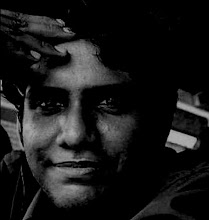The science of cognition. Cognition, as far as my analysis of the word goes, shares its root word with the words recognition and precognition. Following this line of reasoning and analysis, I have defined cognition for myself as: “the act of realizing that the observed object (it could be tangible or intangible), and the model in my mind, are the same thing”. This observed object could be something that can be touched and felt like a chair or a computer or a person, or it could be intangible like an idea or a thought or a concept or a spoken word.
I wouldn't use the word “know” to describe cognition, since I feel that it is an overloaded and ill-defined word and I am not comfortable using it to define something else.
We can argue that “to know” implies a notion of truth, and that it is not really possible to know truth. This sounds to me like another version of Meno's paradox in which Meno asks Socrates how he can know when he has arrived at the truth when he does not already know what the truth is? (Courtesy Wikipedia) In other words, in order to know anything, one must know everything.
I find that I can neither agree nor disagree with this stand. One one hand, I can see the logic and rationale behind that statement, whereas on the other hand, I can also see that no one ever tries to know everything. It is more like a progression. Our method of cognition is more like a progressive series of theories. When we don't know much, we observe the world around us and formulate a theory or a belief set T1, then we observe something or discover something that contradicts something within this belief set and we incorporate that new knowledge into T2: a new theory, world view, belief set, call it what you like. Carrying on like this, we continue to form a long series of theories: T1, T2, T3... and it is our hope that this series will converge one fine day somewhere in the future onto the truth (if such a thing exists).
The funny thing about this process is, an intermediate theory T{T1, T2, T3...} satisfies all the requirements of the believers in that epoch. They are able to interact meaningfully with the relevant environment (whatever subset of the environment their life depends on). For example, at our current belief state, we are able to do everything that our autopoietic instinct commands. Our theories about the far reaches of space may be grossly incorrect, but those reaches of space and our theories about it have little effect on our lives.
Among the various phenomena discussed in class were the interesting cutaneous rabbit illusion , the blinking dots thing, the phantom arm thing and things of this sort. I have not learned enough about them to make any comment other than that to me they are mysteries pertaining to the way our brain processes information. My best guess right now is that those phenomena are the result of the brain's mechanism of compensation for the faultiness of our sense organs. The brain knows that our senses are imperfect and prone to missing out information, hence tries to figure out what was missed even when there was nothing missed out.
As far as the concept of consciousness goes, I have an emergentistic or holistic view of the concept. I do not believe there is a consciousness center in the brain or heart or spleen or any other organ. I believe it emerges out of the various interactions that various parts of our body have with each other. No doubt, the brain is the main information processing organ in the body, but I do not believe that it alone is responsible for consciousness, it is partly responsible in the sense that it has a certain degree of control or governing ability over the interactions of our body parts with each other.
I believe that thought experiments do work, but they will work if and only if the conceptual model we have (of whatever we are contemplating) is precise or as close to precise as humanly possible. Only then will we be able to predict the outcomes of our contemplated actions with a certain degree of accuracy. But when there is a situation which we know precious little about, thought experiments will most likely fail. The best thing about thought experiments is that when conducted in tandem with physical experiments, they can lead to a much better understanding of the world.







